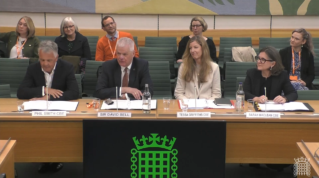The first chief executive of Skills England “should” come from government or business and will report to the Department for Education’s director general for skills, a job advert for the role has revealed.
The hunt for the boss of Labour’s much-hyped skills quango was officially launched today with a closing date of October 31 for applications.
A salary of £130,000 is advertised for the “senior leadership” role where the post-holder is expected to serve for at least three years.
Legislation introduced to the House of Lords this week revealed that Skills England will be established as an executive agency within the DfE rather than an independent or cross-government organisation.
In another move that appears to water down the quango’s power and independence, the status of the CEO of the new body will be at director-level rather than director general, reporting to the DfE’s director general for skills Julia Kinniburgh.
Today’s advert claimed that the CEO’s “influence will extend not only across the breadth of the DfE, but across government and skills bodies across the country”.
But a source close to the DfE who previously told FE Week this move was on the cards warned that influential permanent secretaries from other departments will not see post-holders below director general level as they view this as being “too junior”. The source believes a clipping of their wings in this way may be a deliberate ploy by officials to “contain” the new body.
The CEO job advert said this “high-profile and high-impact” role requires an “inspirational and impactful senior leader, with a successful track record of leading, developing and motivating multidisciplinary teams in a high profile and politically sensitive environment”.
It explicitly states that the government wants candidates to be “senior leaders from government or from business”, who can “demonstrate the ability to lead an organisation, to work successfully in a government context, and to work closely and effectively with business leaders”.
Applicants must “have experience of using a range of powers, levers and interventions to achieve measurable impact, and of understanding and balancing the conflicting demands of a range of stakeholders”.
Skills England is expected to drive the government’s efforts to meeting skills needs over the next decade by “bringing together central and regional government, businesses, training providers and unions to a) develop a single picture of national skills needs, b) identify priority training programmes to receive funding and c) ensure that national and regional skills systems are meeting skills need”.
The body currently operates in shadow form with Richard Pennycook, a Department for Education non-executive director and former boss of the Co-operative Group, in post as interim chair.
Adverts for a permanent chair and board went live in August. Interviews for the roles are due to take place in early November.
The body sitting within the DfE is being established in phases over the next six to nine months. Predictions are that it will be fully operational by April.
The CEO job advert said the post-holder will “lead the establishment of this new body – the precise form of which is subject to parliamentary authorisation – developing a commitment to a shared vision for the agency and lead and inspire a culture of collaborative leadership and teamwork to deliver the agency’s mission and plans with creativity, pace, impact and rigour and with a clear sense of purpose and employee engagement”.
Formal interviews for candidates will be held the first week in December.

















I’m sure that the “source close to the DfE” is well informed but, if what they say is true about modern Permanent Secretaries, it’s an issue that needs tackling in the senior civil service. But perhaps it’s a caricature.
Any good senior manager will engage with people at all levels in their own or other organisations regardless of grade or job title but according to need.
in this case, skills issues have an impact on many government programmes, missions and departments. If people on higher grades refuse to talk to someone just because of their grade, I’d hope that those on even higher grades still tackle them on their management style.
Keith Smith